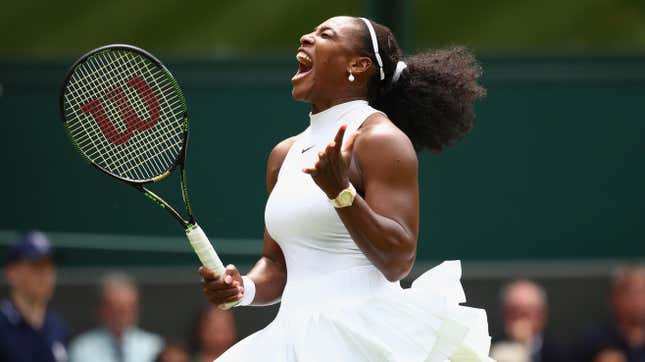Serena Williams Says She Wouldn’t Have to Retire From Tennis Right Now ‘If I Were a Guy’
This year’s U.S. Open will be her last, she told Vogue. Now, she wants to focus on motherhood (and her burgeoning venture capital firm).
CelebritiesNews

It’s rare that a single human being accomplishes as much as Serena Williams has in a lifetime, let alone in the 27 years she’s brandished a tennis racket. But her legacy isn’t yet cemented, at least as far as it extends outside the tennis arena: She announced her retirement—or, in her words, her “evolution” away—from tennis in a Vogue essay and photo spread published online on Tuesday.
In Williams’ essay, as told to Rob Haskell, the renowned athlete and mother to 4-year-old Olympia explained her painstaking decision to step away from her storied tennis career after she plays in the 2022 U.S. Open at the end of the month. After winning 23 Grand Slam singles titles and regularly ranking as No. 1 in the sport, Williams will focus, instead, on growing her family with her husband, Alexis Ohanian (the co-founder of Reddit, who is now—like Williams herself—very, very rich).
-

-

-

-

-

-

-

-

-

-

-

-

-

-

-

-

-

-

-

-

-

-

-

-

-

-

-

-

-

-

-

-

-

-

-

-

-

-

-

-








































